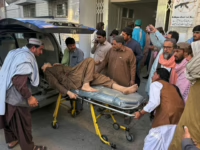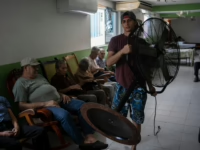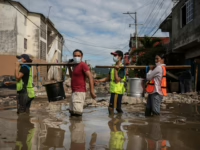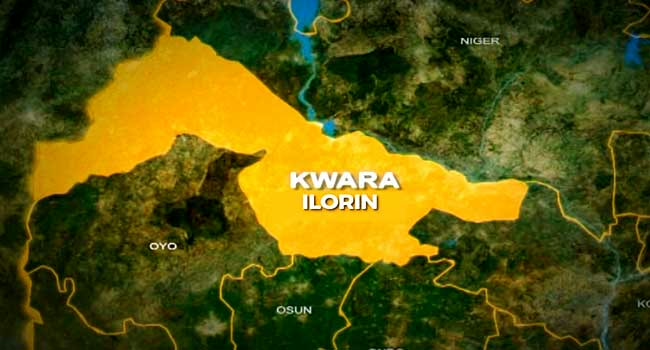Once regarded as a bastion of tranquility within Nigeria’s often volatile North-Central zone, Kwara State is now confronting a troubling shift in its security landscape. Unlike its neighbors-Plateau, Niger, and Benue states-which have long grappled with relentless attacks from armed bandits and violent herders, Kwara had largely remained insulated, with security issues mostly limited to sporadic armed robberies.
However, this sense of safety has been severely undermined in recent months by a series of well-coordinated bandit raids that threaten to plunge the state into the same turmoil afflicting its neighbors.
The surge in violent incidents across Kwara signals the rapid infiltration of organized criminal elements into communities that were previously spared from such widespread terror.
A stark illustration of this new reality occurred on August 8, 2025, when Babanla village in Ifelodun Local Government Area was attacked by over 200 armed assailants on motorcycles. The assailants ransacked the local market, set fire to the police station, and killed five individuals, including a police officer-an audacity that was once unimaginable in Kwara.
Such large-scale, coordinated assaults on government facilities mark a dangerous escalation from mere criminal acts to organized insurgency.
These attacks reveal the presence of highly organized criminal syndicates operating with alarming precision. The kidnapping and subsequent murder of Reverend James Audu Issa in Patigi Local Government Area exemplify the merciless nature of these groups. Despite the community paying a ₦5 million ransom, the kidnappers demanded an additional ₦45 million and executed the pastor when the extra payment was not forthcoming.
This cold-blooded act underscores the futility of negotiating with criminals who operate without any regard for morality or human life.
The massacre on September 28 at Oke-Ode, where at least 15 people-including the community’s traditional ruler-were killed and numerous others abducted, marks a critical turning point in Kwara’s security crisis.
Eyewitnesses described the victims being slaughtered “like livestock,” and the forced evacuation of residents from their farms and homes highlights that banditry in Kwara has escalated to levels comparable to the devastation seen in other North-Central states.
The spillover from neighboring Kogi State, especially the Yagba West area, plays a significant role in this growing insecurity. Coordinated attacks in Kogi’s Yagba West Local Government Area, which claimed over 27 lives in a single day, alongside violent incidents along the Kwara-Kogi border, indicate that bandit groups are broadening their operational reach.
The porous boundary between these states facilitates the free movement of criminals, enabling them to strike in one state and retreat to safe havens in another.
Governor AbdulRahman AbdulRazaq’s proactive stance in tackling this crisis is commendable. His direct dialogue with President Bola Tinubu and appeal for increased federal security support reflect an understanding that the state’s resources alone are insufficient to combat this menace.
Moreover, the governor’s proposal to form a state security force drawn from local communities is a practical strategy for long-term stability. Security personnel familiar with the local terrain and social fabric can provide invaluable support to federal forces, offering a level of insight and responsiveness that external units may lack.
Nonetheless, it is imperative that such local forces receive comprehensive training, proper equipment, and operate within a clear legal framework to ensure effectiveness and adherence to constitutional norms.
The Senate’s recommendation to establish a permanent military base in Kwara South acknowledges that temporary troop deployments are inadequate for addressing deep-rooted security challenges. A permanent military installation would serve as a deterrent, enable rapid response, and facilitate continuous intelligence operations-capabilities that rotating units cannot sustain.
Given Kwara’s strategic importance, the federal government must prioritize this initiative to prevent the state from descending into the chaos that has engulfed its neighbors.
While the Kwara State Government has dismissed claims that nine out of sixteen local government areas are under bandit control, this reassurance should not downplay the serious security threats confronting many communities.
Although no local government has been fully overtaken, the ability of bandits to mount attacks with hundreds of fighters, abduct citizens with impunity, and extort millions in ransom blurs the line between being “under attack” and “under control” for those affected.
It is crucial to recognize the interconnectedness of Kwara’s security challenges with the broader instability in the North-Central region. Military pressure in one state often displaces bandits to neighboring areas with weaker security presence.
Without a coordinated regional security framework involving all North-Central states, efforts to curb banditry in one area risk merely shifting the problem elsewhere. The federal government must spearhead interstate collaboration to close loopholes that criminals exploit across jurisdictional boundaries.
Failing to secure Kwara would not only represent a humanitarian setback but also a strategic blunder. Positioned as a vital link between Nigeria’s North and South, Kwara’s stability is essential for national unity and economic vitality.
The citizens of Kwara deserve to see their state remain a sanctuary of peace rather than becoming another battleground for bandit violence.
Decisive federal action is needed to establish the military base endorsed by the Senate, allocate sufficient resources for security operations, and coordinate regional strategies that prevent bandits from exploiting state borders.





















